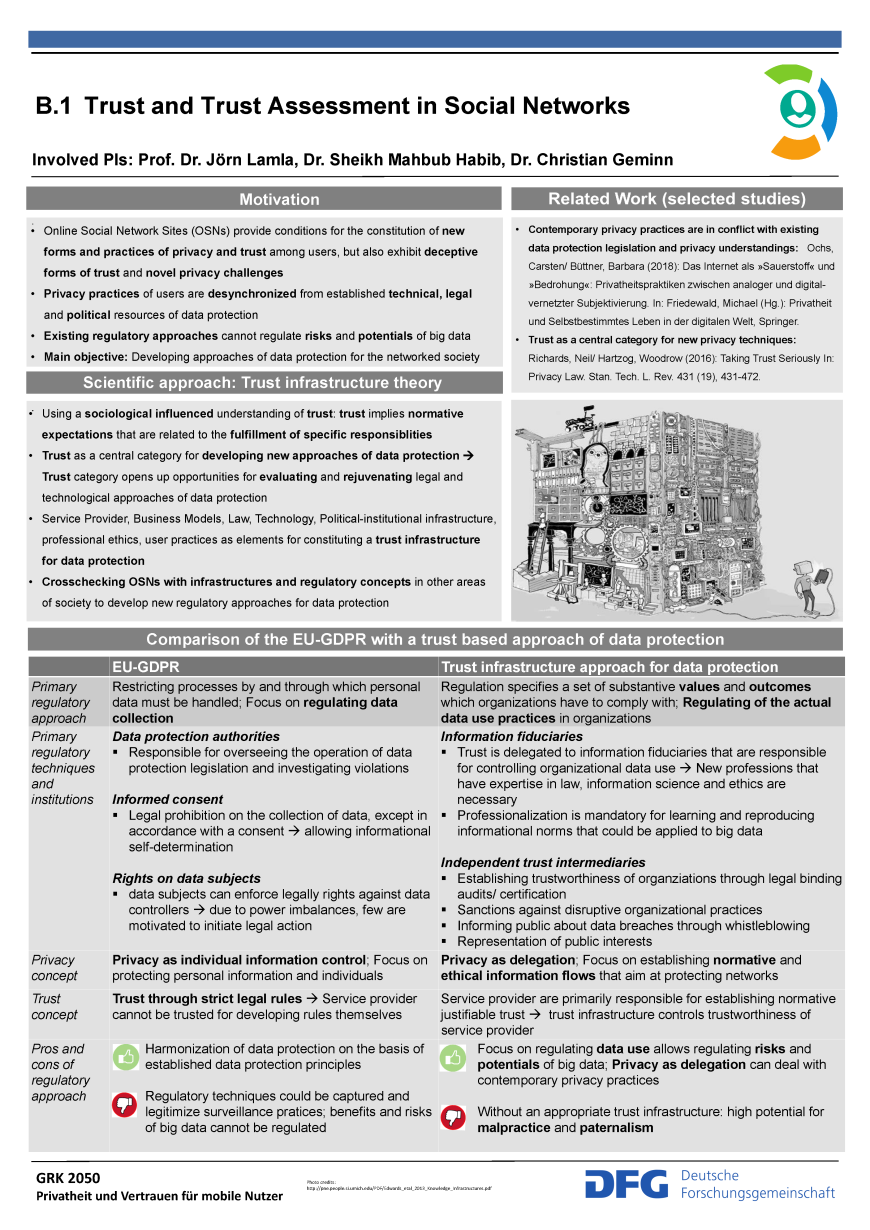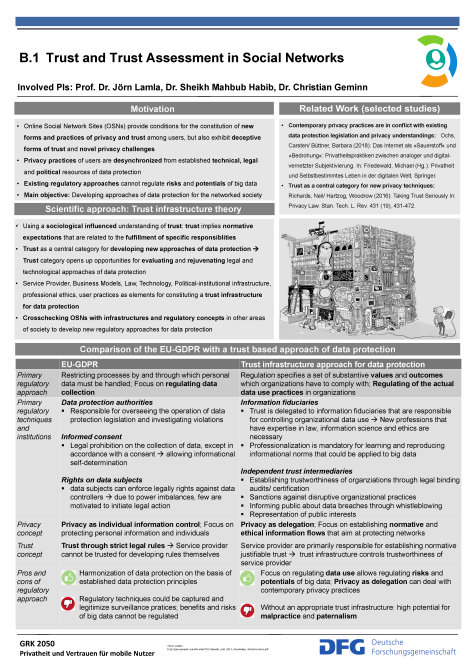- Markus Uhlmann -
Since at least the so called ”Snowden-revelations” one can assume a crises of trust regarding the constitution of digital infrastructures. This widely discussed crises relates to complex trust relations among various actors like states, internet organizations as well as users of digital infrastructures. Given that problems of trust in the digital world are often discussed with regard to objections of privacy also the contested status of privacy is revealed when the constitution of collective trust resources is challenged.1 However, the various challenges that are related to privacy and trust have not led to digital abstinence. On the contrary, in connection with the huge popularity of Online Social Network Sites (OSNs) we have to deal with the fact that digital mediated practices have already become a relevant component of our daily lives. Therefore, it becomes clear why studying privacy and trust in the context of OSNs is related to inherently ambivalent issues. On the one hand, OSNs promote possibilities for the constitution of new forms of privacy and trust in digital environments. On the other hand, with respect to inappropriate usage of user data through state organizations or serivce providers and ethical concerns of Big Data technologies, there is no doubt that OSNs generate a lot of novel challenges concerning privacy and trust.2 From this perspective, there is a specific need for developing new criteria and regulatory techniques of data protection that can deal with the complex socio-technical dynamics of privacy and trust in OSNs.
In order to deal with these regulatory challenges of data protection, my research argues for using the trust category as a normative reference point. In this context, I argue that trust related phenomena generally involve normative expectations concerning the fulfillment of specific responsibilities. The normative expectation that the actual data use fulfills normative and ethical criteria is of central importance in this context. By using a sociological influenced understanding of trust, I discuss various implications of using the trust category for the development of alternative institutions, regulatory approaches and normative principles of data protection in the context of OSNs. On the one hand, I argue that a normative understanding of trust can provide a general re-interpretation of established data protection princples and privacy techniques like notice-and-choice.3 On the other hand, my research provides a holistic perspective for the institutionalization of socio-technical trust infrastructures that can deal with the various challenges of data protection. In order to develop new regulatory ideas for data protection, my doctoral thesis aims at crosschecking regulatory challenges of data protection in the context of OSNs with regulatory challenges in other areas of society.




